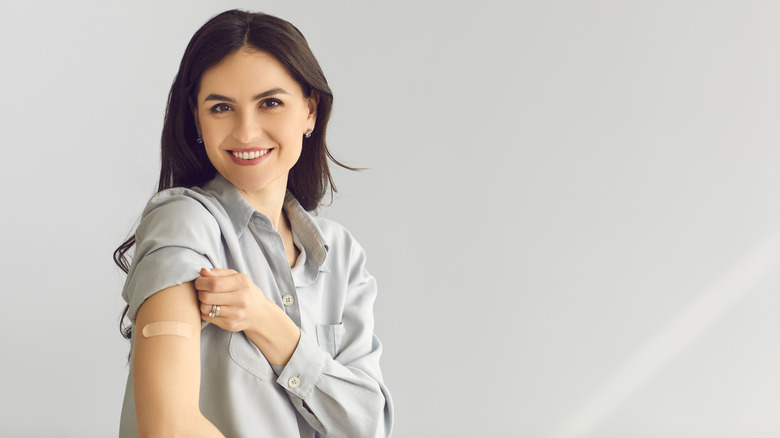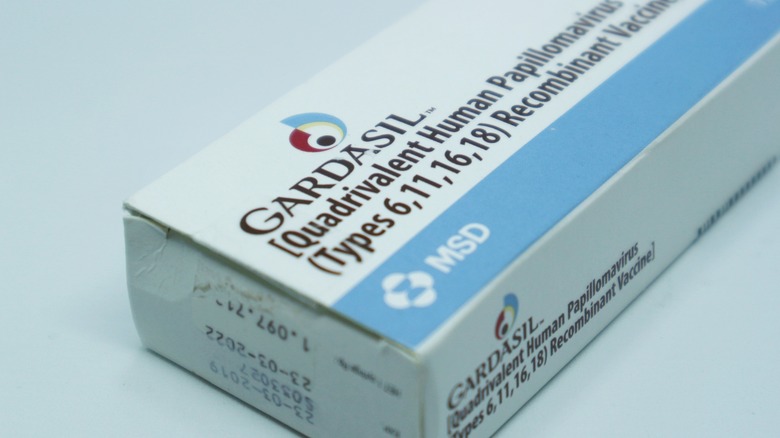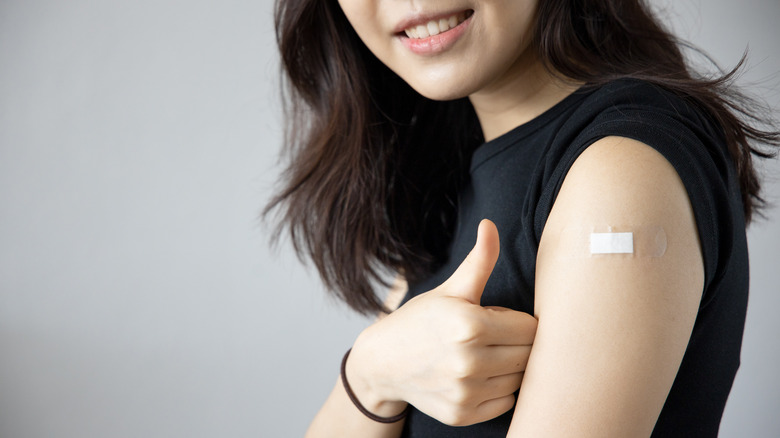Can Adults Get An HPV Vaccine?
Human papillomavirus, or HPV, is the most common sexually transmitted disease. According to Planned Parenthood, there are more than 200 different types of HPV, with about one-fourth of those strains affecting the genital areas, mouth, and throat. HPV can affect different regions of the body, yet symptoms of the disease can be mild enough to go unnoticed by the infected individual unless the symptoms progress.
The National Cancer Institute (NCI) explains that while most HPV strains are not problematic, there are a few that can have notable symptoms. In some cases, these virus strains can cause problems such as genital warts. However, what is most concerning is the associated risk in both men and women for the development of certain cancers.
HPV can be transmitted through any sexual act with an infected partner. As many individuals can be asymptomatic, maintaining healthy sexual practices, such as wearing a condom, can help protect you. However, the NCI warns that most sexually active people contract HPV within a few years of becoming sexually active, with around half of these infections involving a type of HPV that might lead to cancer if left untreated.
A vaccine called Gardasil was developed in 2006, initially recommended for females between ages 9 and 26 years old (via Memorial Sloan Kettering Cancer Center). However, if you're above the age of 26, you may be wondering if the vaccine is not only right but available for you.
The HPV vaccine
Currently, there's an effective vaccine that can be used to prevent contracting HPV called Gardasil. The vaccine was first approved by the Food and Drug Administration in 2006 for girls and women up to 26 years old. However, this first vaccine was only effective against four strains of the virus and wasn't as effective in adults, according to Kaiser Family Foundation.
Kaiser Family Foundation reports that in 2014, an updated Gardasil vaccine called Gardasil 9, which provides protection from nine strains of the virus, was approved by the FDA. The vaccine is given in two or three doses, depending on the patient's age.
In women, the vaccine can help protect against cervical cancer, vaginal cancer, anal cancer, certain head and neck cancers, genital warts, and other related illnesses, according to Merck, the company which manufactures the vaccine. In men, similar prevention protection is offered from anal cancer, genital warts, and certain head and neck cancers. According to the NCI, the vaccine is most effective when administered between 9 and 12 years of age.
Can I get vaccinated if I'm above 26 years old?
The short answer is: Yes! In 2014, Merck announced that their latest HPV vaccine Gardasil 9 was approved for men and women, from 9 to 45 years of age. The newest development of the vaccine expanded the age range; however, there may be a few differences in the process, depending on your age.
For individuals aged 9 to 14 years old, the vaccine is recommended to be given in two doses, spaced six to 12 months apart. For individuals 15 to 45 years of age, the vaccine is administered in three doses over the course of six months (per Kaiser Family Foundation).
The Centers for Disease Control and Prevention (CDC) recommends that people over the age of 26 who have not been fully vaccinated against HPV speak with their health care provider or primary physician to determine if Gardasil 9 is right for them. The CDC notes that the vaccine may be less beneficial for adults because many of them have been exposed to HPV already. While the vaccine does protect against new HPV infections, it is not a cure for HPV (via Memorial Sloan Kettering Cancer Center). Keep in mind that many cases of HPV are asymptomatic, which is why cervical cancer screenings are important, per NCI.
Practicing safe sexual practices, such as using condoms and attending regular screenings, can help reduce your risk of contracting or experiencing complications from sexually transmitted infections such as HPV.



